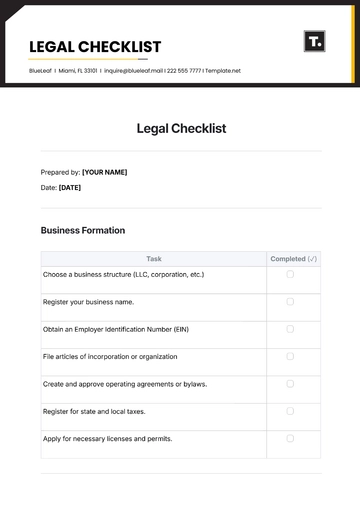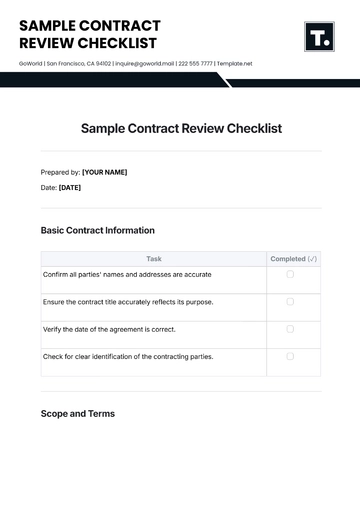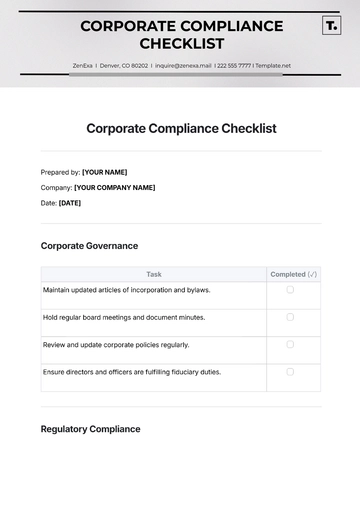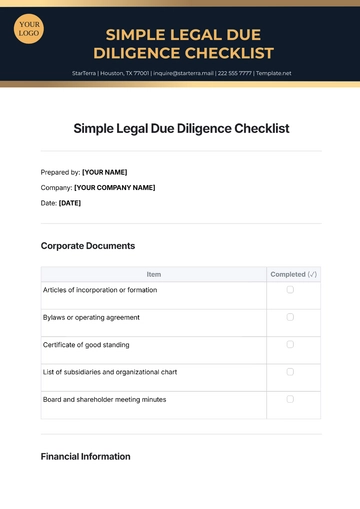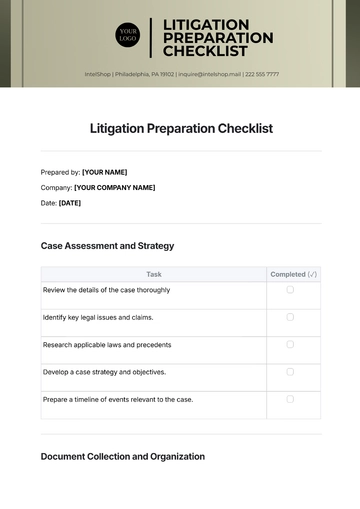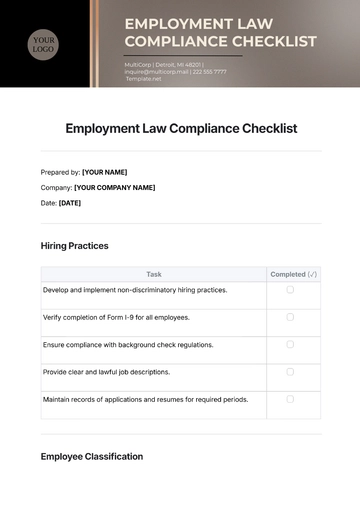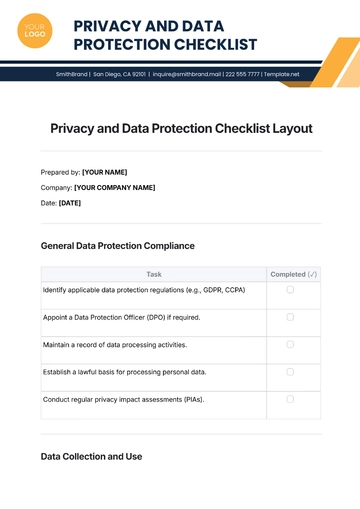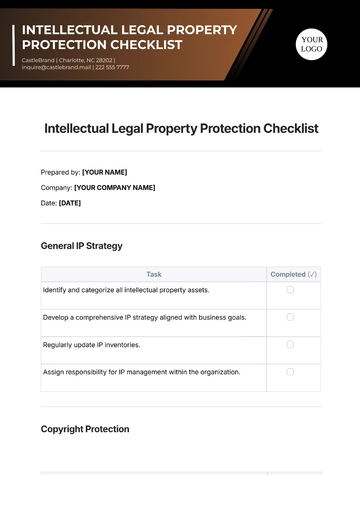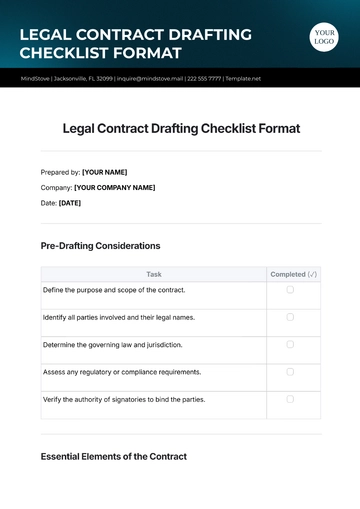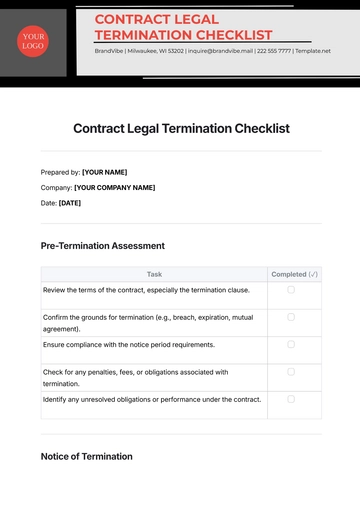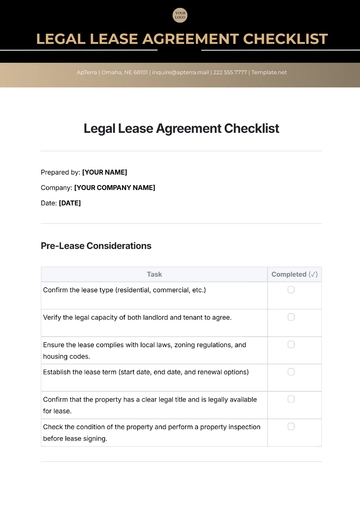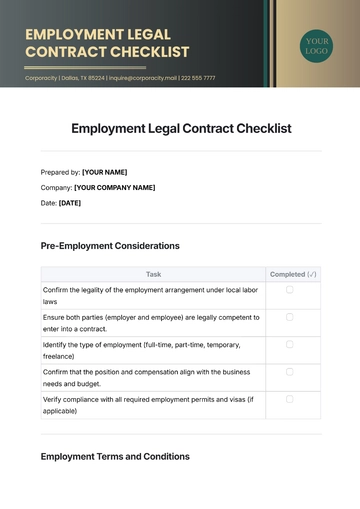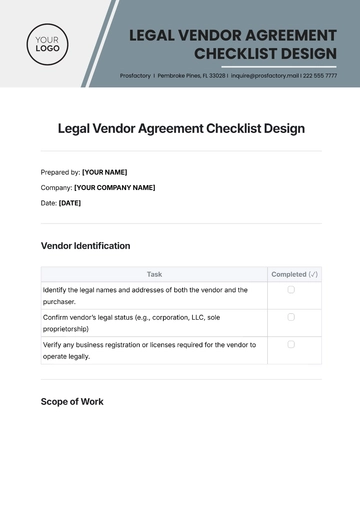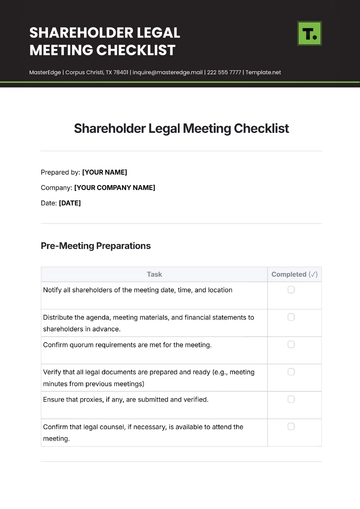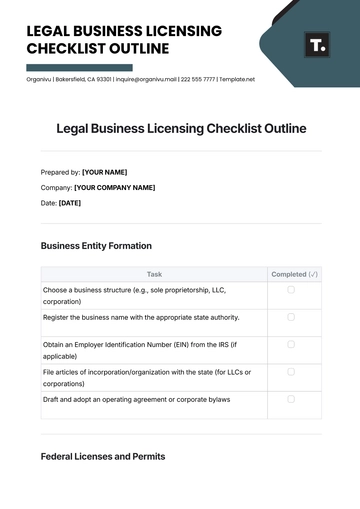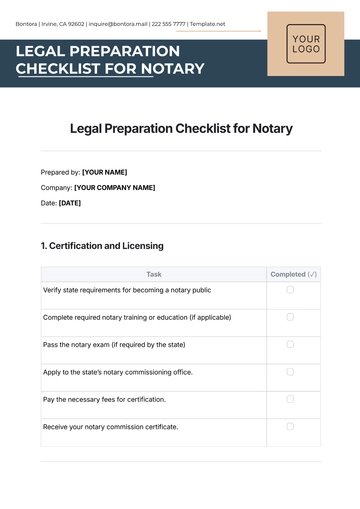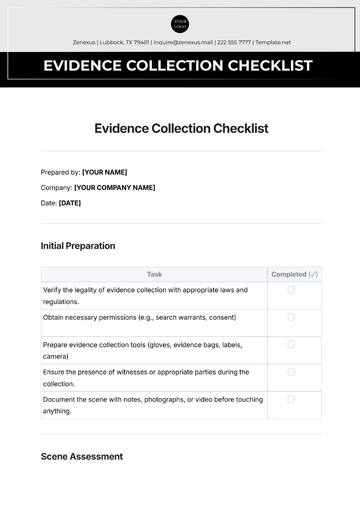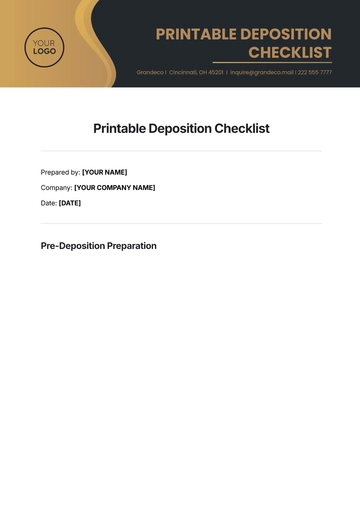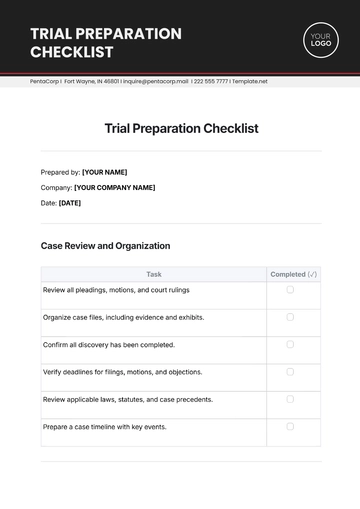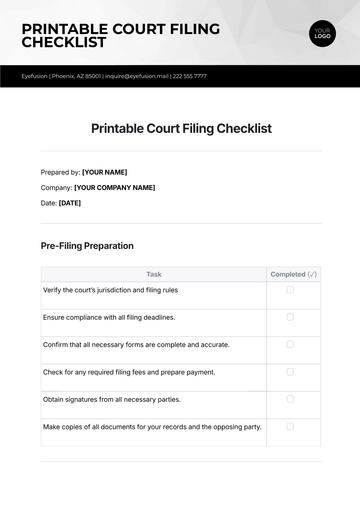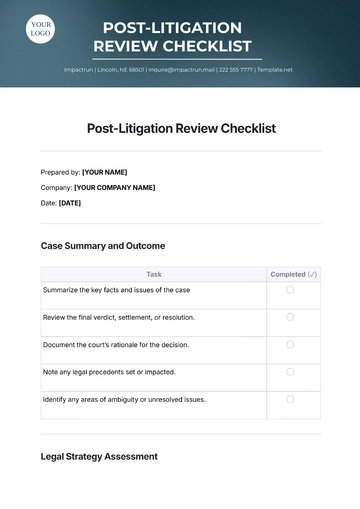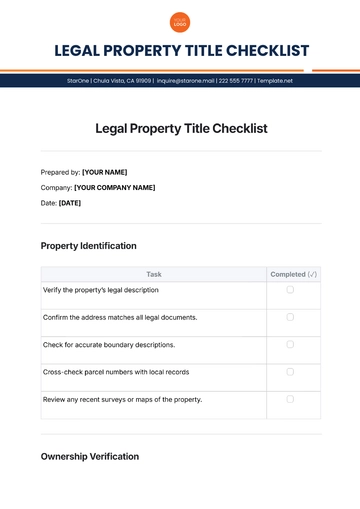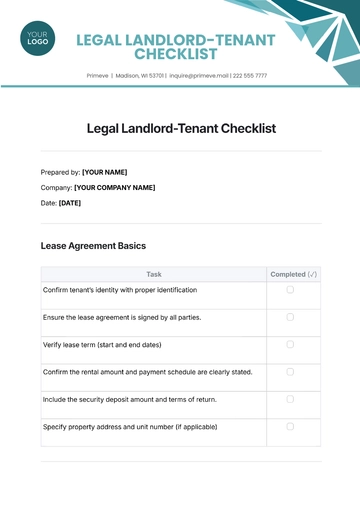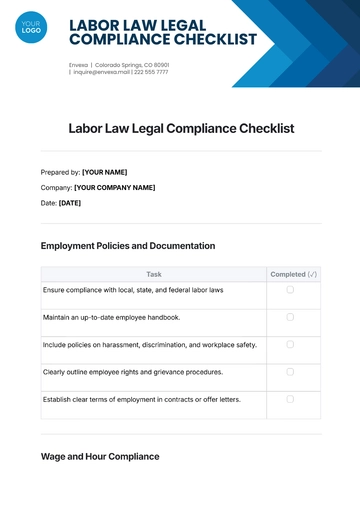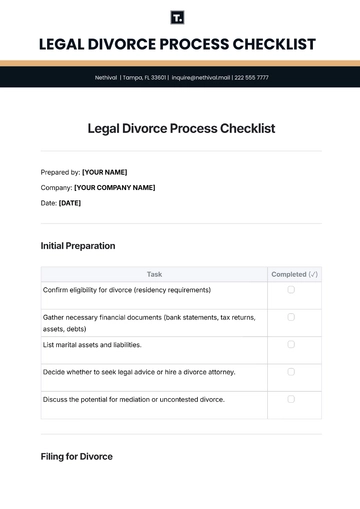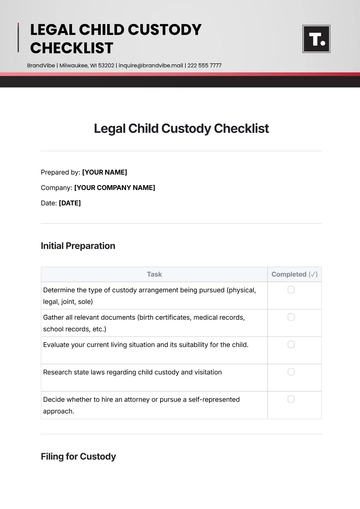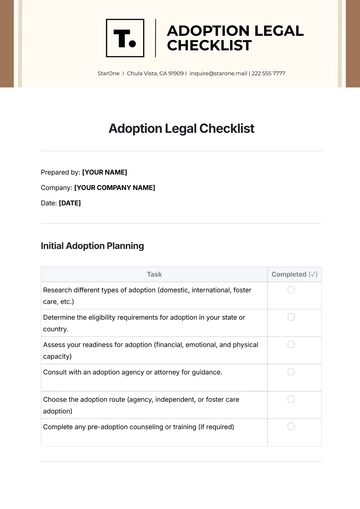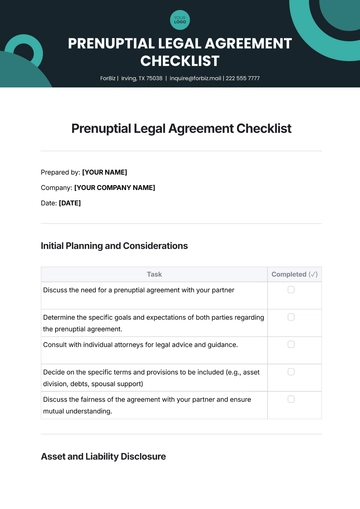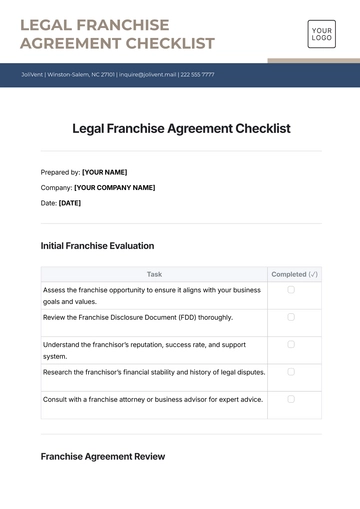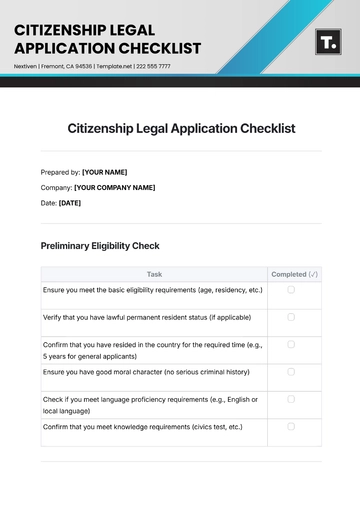Free Travel Agency Marketing Checklist
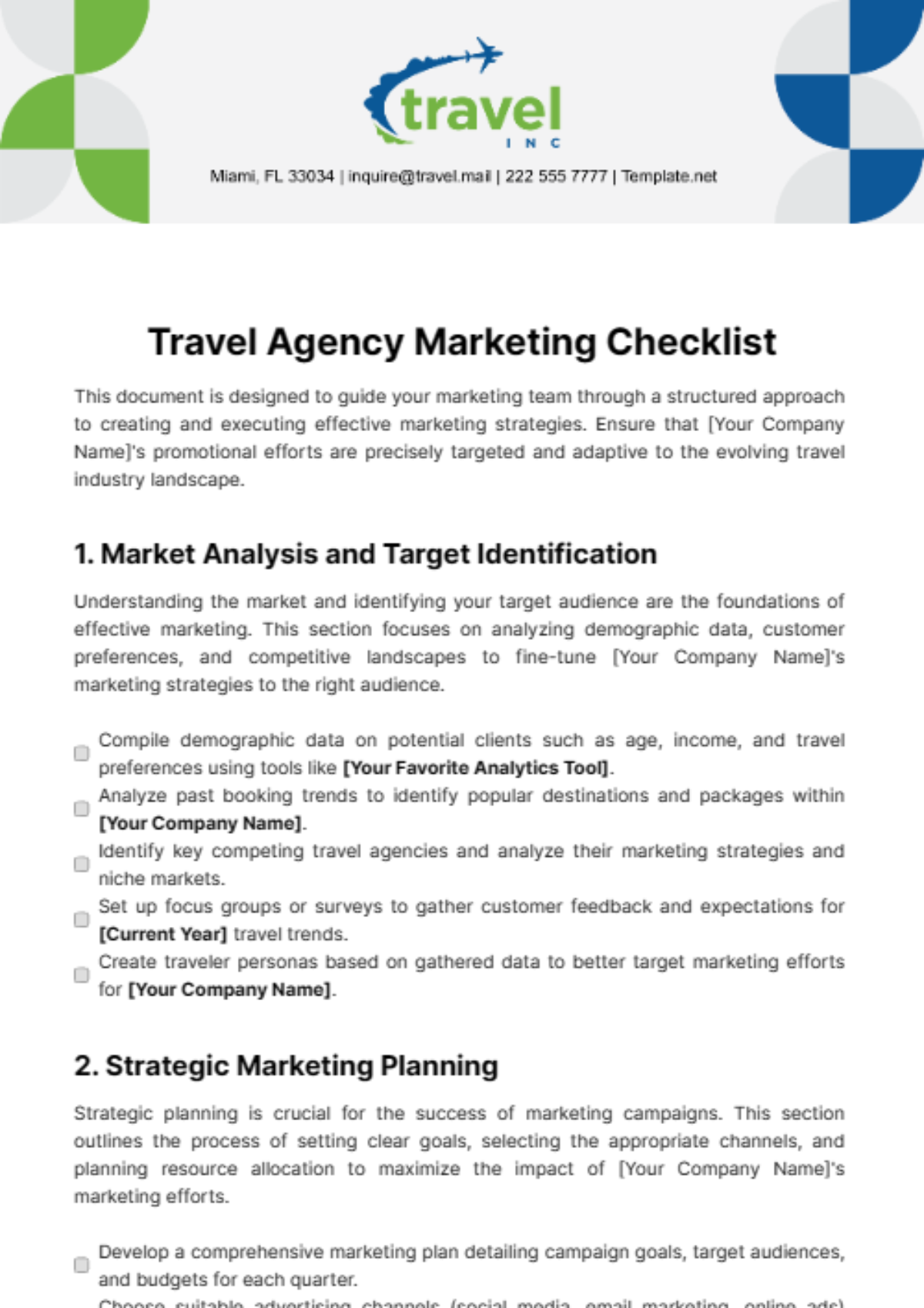
This document is designed to guide your marketing team through a structured approach to creating and executing effective marketing strategies. Ensure that [Your Company Name]'s promotional efforts are precisely targeted and adaptive to the evolving travel industry landscape.
1. Market Analysis and Target Identification
Understanding the market and identifying your target audience are the foundations of effective marketing. This section focuses on analyzing demographic data, customer preferences, and competitive landscapes to fine-tune [Your Company Name]'s marketing strategies to the right audience.
Compile demographic data on potential clients such as age, income, and travel preferences using tools like [Your Favorite Analytics Tool].
Analyze past booking trends to identify popular destinations and packages within [Your Company Name].
Identify key competing travel agencies and analyze their marketing strategies and niche markets.
Set up focus groups or surveys to gather customer feedback and expectations for [Current Year] travel trends.
Create traveler personas based on gathered data to better target marketing efforts for [Your Company Name].
2. Strategic Marketing Planning
Strategic planning is crucial for the success of marketing campaigns. This section outlines the process of setting clear goals, selecting the appropriate channels, and planning resource allocation to maximize the impact of [Your Company Name]'s marketing efforts.
Develop a comprehensive marketing plan detailing campaign goals, target audiences, and budgets for each quarter.
Choose suitable advertising channels (social media, email marketing, online ads) based on the profile of traveler personas.
Set specific, measurable, attainable, relevant, and time-bound (SMART) goals for marketing campaigns of [Your Company Name].
Plan seasonal promotions around major travel periods like summer and winter holidays.
Determine the marketing budget allocation for various platforms ensuring optimal use of funds.
3. Content Creation and Management
Engaging and relevant content is key to captivating your audience. This section ensures that all promotional materials and digital content align with [Your Company Name]'s brand and appeal effectively to different traveler personas.
Design and update promotional materials including brochures, flyers, and newsletters for [Your Agency's Next Big Campaign].
Create engaging content for social media platforms tailored to different traveler personas, ensuring brand consistency.
Organize photo and video shoots for fresh visuals promoting new packages or destinations offered by [Your Company Name].
Update website content regularly with SEO-optimized articles and blogs related to popular destinations and travel tips.
Monitor and refresh email marketing templates and strategies to improve engagement and increase open rates.
4. Execution and Monitoring
Execution and continuous monitoring are essential to understand the effectiveness of marketing strategies. This segment focuses on deploying campaigns, assessing their impact, and making necessary adjustments to optimize results.
Launch marketing campaigns across selected channels and monitor performance via [Your Analytics Tool].
Adjust marketing strategies in real-time based on analytics and feedback to maximize campaign effectiveness.
Track and report on key performance indicators like conversion rates, lead generation, and customer engagement.
Coordinate with sales teams to align marketing efforts with sales objectives and optimize cross-functional strategies.
Review and refine the marketing approach quarterly based on campaign results and evolving market conditions.
5. Review and Future Planning
Regular reviews and forward planning are essential for staying ahead in the competitive travel market. This section focuses on analyzing past campaigns, setting future goals, and exploring innovative marketing tactics to maintain and grow [Your Company Name]'s market presence.
Conduct a comprehensive review of all marketing campaigns with team members to identify successes and areas for improvement.
Plan for upcoming campaigns based on current year analytics and forecasted travel trends for [Next Year].
Explore new platforms and technologies that can enhance marketing efforts and provide a competitive edge.
Set goals and prepare budgets for the coming year with a focus on innovation in marketing strategies.
Maintain an agile approach to adapt to changes in the travel industry and consumer behavior.
Prepared By: [Your Name]
- 100% Customizable, free editor
- Access 1 Million+ Templates, photo’s & graphics
- Download or share as a template
- Click and replace photos, graphics, text, backgrounds
- Resize, crop, AI write & more
- Access advanced editor
Elevate your travel agency's marketing efforts with our Travel Agency Marketing Checklist Template from Template.net. This editable and customizable template ensures a comprehensive approach to promotion and client engagement. It's easily editable in our AI Editor Tool. Enhance your outreach and streamline your marketing strategy; this template is designed to deliver results and captivate your audience.
You may also like
- Cleaning Checklist
- Daily Checklist
- Travel Checklist
- Self Care Checklist
- Risk Assessment Checklist
- Onboarding Checklist
- Quality Checklist
- Compliance Checklist
- Audit Checklist
- Registry Checklist
- HR Checklist
- Restaurant Checklist
- Checklist Layout
- Creative Checklist
- Sales Checklist
- Construction Checklist
- Task Checklist
- Professional Checklist
- Hotel Checklist
- Employee Checklist
- Moving Checklist
- Marketing Checklist
- Accounting Checklist
- Camping Checklist
- Packing Checklist
- Real Estate Checklist
- Cleaning Checklist Service
- New Employee Checklist
- Food Checklist
- Home Inspection Checklist
- Advertising Checklist
- Event Checklist
- SEO Checklist
- Assessment Checklist
- Inspection Checklist
- Baby Registry Checklist
- Induction Checklist
- Employee Training Checklist
- Medical Checklist
- Safety Checklist
- Site Checklist
- Job Checklist
- Service Checklist
- Nanny Checklist
- Building Checklist
- Work Checklist
- Office Checklist
- Training Checklist
- Website Checklist
- IT and Software Checklist
- Performance Checklist
- Project Checklist
- Startup Checklist
- Education Checklist
- Home Checklist
- School Checklist
- Maintenance Checklist
- Planning Checklist
- Manager Checklist
- Wedding Checklist
- Vehicle Checklist
- Travel Agency Checklist
- Vehicle Inspection Checklist
- Interior Design Checklist
- Backpacking Checklist
- Business Checklist
- Legal Checklist
- Nursing Home Checklist
- Weekly Checklist
- Recruitment Checklist
- Salon Checklist
- Baby Checklist
- Equipment Checklist
- Trade Show Checklist
- Party Checklist
- Hospital Bag Checklist
- Evaluation Checklist
- Agency Checklist
- First Apartment Checklist
- Hiring Checklist
- Opening Checklist
- Small Business Checklist
- Rental Checklist
- College Dorm Checklist
- New Puppy Checklist
- University Checklist
- Building Maintenance Checklist
- Work From Home Checklist
- Student Checklist
- Application Checklist
